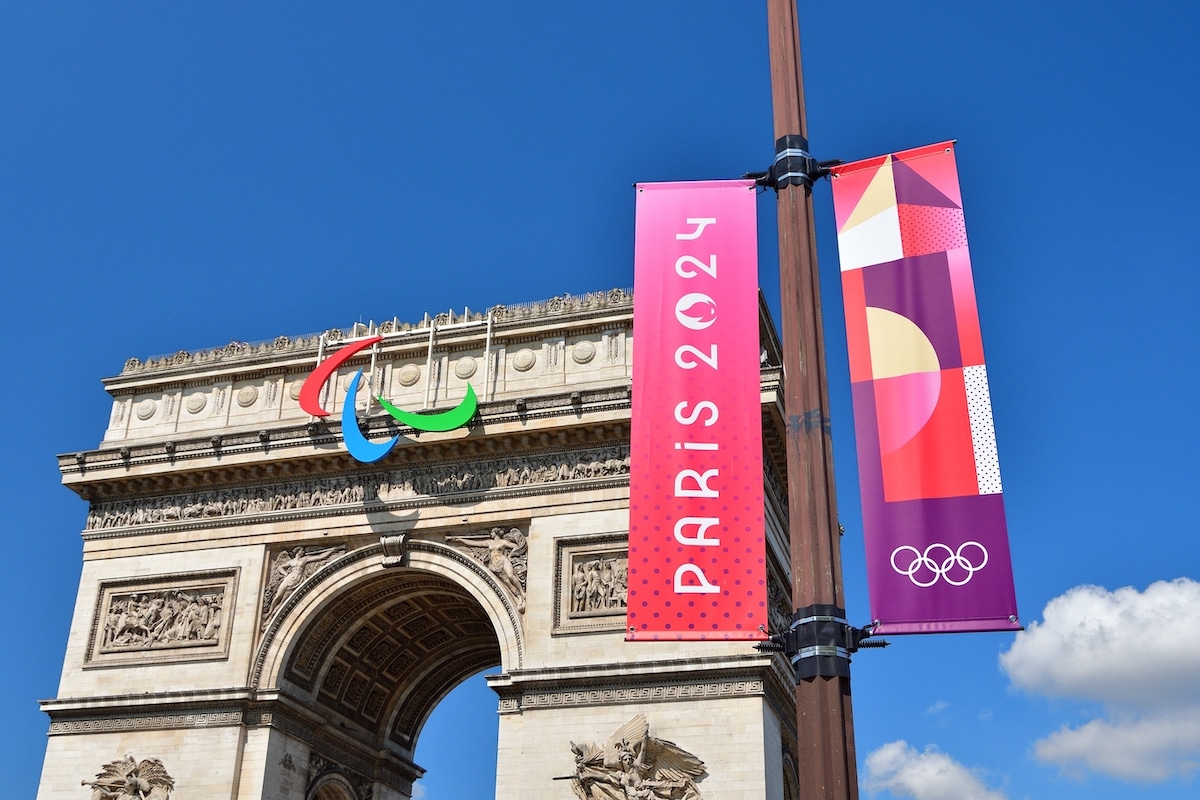The 2024 Paris Paralympic Games, known for showcasing extraordinary athleticism and determination, also became a flashpoint for controversy surrounding transgender athlete Valentina Petrillo. As the first openly transgender Paralympian, Petrillo’s participation in the women’s T12 400-meter event ignited fierce debate, including sharp criticism from prominent author J.K. Rowling.
Rowling’s Accusation
Rowling, who has been outspoken in her views about gender and the protection of women’s spaces, did not mince words in her criticism of Petrillo. In a tweet on X (formerly Twitter), she labeled the Italian sprinter an “out and proud cheat.” The Harry Potter author argued that Petrillo’s inclusion in the women’s category was unfair to biological female athletes, implying that transgender women have an advantage in competition.
“Yeah, no. That’s not the only thing I, or any of the other millions of women concerned about the destruction of female categories, boundaries, and rights, are concerned about,” Rowling wrote on X, clarifying that her objections were about the integrity of women’s sports beyond just issues of bathroom access.
Rowling’s views reflect a broader debate in sports, where advocates for fairness in women’s competitions argue that transgender women, having gone through male puberty, possess physical advantages that make competition unequal. This sentiment has led to policies from some sports organizations, such as World Athletics, which banned transgender athletes from competing in women’s events if they transitioned after puberty.
Petrillo’s Response: “It’s Just Transphobia”
Petrillo, undeterred by Rowling’s harsh words, fired back in a measured but pointed response, accusing the author of being misinformed and driven by prejudice. “J.K. Rowling is only concerned about the fact that I use the female toilet, but she doesn’t know anything about me,” Petrillo said in an interview with The Times.
The Italian sprinter, who transitioned in 2019 and is visually impaired due to a degenerative eye condition known as Stargardt disease, expressed frustration with the notion that her participation in women’s sports was damaging or unfair.
In her defense, Petrillo pointed out that fears about transgender athletes overtaking women’s sports are unfounded. She noted that despite the IOC’s decision to allow transgender athletes to compete since 2015, “there has only been one person who competed, Laurel Hubbard, [a weightlifter from New Zealand]. And there has only been one [openly transgender] person that has participated at the Paralympics, me. So all of this fear that trans people will destroy the world [of women’s sport] actually does not exist. People said [lots of] men would go to compete as women just so they could win, but that has not happened at all. It is just transphobia.”
A Broader Debate on Inclusion and Fairness
Petrillo’s participation in the Paralympics came under scrutiny not only from public figures like Rowling but also from parts of the sports world. While World Para Athletics allows transgender athletes to compete if they meet specific testosterone requirements (under 10 nanomoles per liter of blood for at least 12 months before their first competition), other organizations, such as World Athletics, have taken stricter stances, banning transgender women who transitioned post-puberty.
However, Petrillo remains adamant that her presence in the sport does not undermine fairness. “People still die for being trans,” she reminded, emphasizing that trans athletes continue to face life-threatening discrimination. She also acknowledged that the concerns some people raise are legitimate, but she believes the root cause is a lack of understanding and proper dialogue. “We must talk about these things, we must not be afraid. We must ask ourselves questions; the world of sport must also question us. Certainly, the word inclusion must be at the forefront of the world of sport, because a solution must be found for everyone.”
The Future of Transgender Athletes in Sports
The debate surrounding Petrillo’s participation in the Paralympics is emblematic of a broader conversation about the place of transgender athletes in sports. While proponents of inclusion argue for the rights of transgender athletes to compete in categories aligned with their gender identity, others express concern about preserving fair competition in women’s sports.
Petrillo’s response to Rowling reveals the deeply personal stakes involved for transgender athletes. For Petrillo, her journey is about much more than winning races. It is about inclusion, acceptance, and dismantling prejudice in a world that often views transgender identities with suspicion. As the athlete noted, “Before, when I decided not to run anymore because I no longer felt like running as a male, I asked myself these questions. I said, ‘What if you, as a biological woman, saw Valentina on the track?’” The questions, she believes, are worth asking, but they must be answered with openness and a commitment to education.
As transgender athletes like Valentina Petrillo continue to push boundaries in the sports world, the debate about their inclusion will undoubtedly persist. Figures like J.K. Rowling argue for the protection of women’s sports from what they see as an existential threat, while Petrillo and her supporters view such critiques as rooted in transphobia rather than legitimate concern.
What’s clear is that this is not just a conversation about sports; it’s about identity, inclusion, and what fairness means in an evolving world. As Petrillo herself puts it, “A solution must be found for everyone.”
This article was first published on Pulse of Pride.
Feature photo credit: Shutterstock/ noriox. The images used are for illustrative purposes only and may not represent the actual people or places mentioned in the article.
For transparency, this content was partly developed with AI assistance and carefully curated by an experienced editor to be informative and ensure accuracy.

